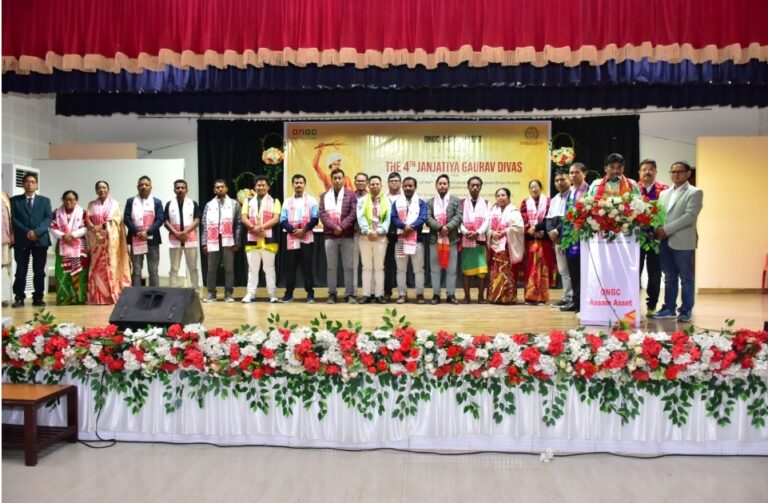Women and men have equal contribution in the formation and upliftment of society. The contribution of men is often discussed, but the social work done by women is not so much discussed. Two and a half hundred years ago, Savitribai Phule and Fatima Sheikh, who worked in the field of education for women and Dalits, were revolutionary women of their time. Together they worked for education and social reform. Savitribai Phule’s contribution is familiar to us. But not much information is available about Fatima Sheikh. From the letters of Savitri Bai we get information about Fatima Sheikh.

Savitribai Phule was born on 3 January 1831 at Naigaon in Satara district of Maharashtra. Savitribai was married to Jotiba Phule in 1840. Jotiba lived with his cousin Sagunabai. After marriage, Jotiba Phule continued his education. Along with his own studies, Jotiba also started teaching Savitribai at home. Soon Savitribai learned to read and write Marathi and English. After this, Savitribai passed the school examination. Savatribai knew the importance of education. Savitribai and Jotiba wanted that like them, backward class women in the society should also get the opportunity to read and write. At that time there was no system of education for Dalits and backward castes.
Jotiba and Savitribai decided to open a school for girls. But the problem was where to get female teachers to teach the girls? Where there’s a will there’s a way. Savitribai took the responsibility of this great work. She completed a teacher training course from Missionary College. Now she was a trained teacher. Thus Jotiba and Savitribai laid the foundation of the first women’s school in Pune in 1848. Running a school for women was not an easy task. Initially, parents were not ready to send their daughters to school. People were not in favour of educating girls. They had an ignorant belief that if girls were taught, seven generations of them would go to hell. It becomes very difficult to explain to people in such a situation.Despite this, Savitribai did not lose heart. She used to go to people’s houses, understand and discuss them with love and compassion. She told people the importance of education.

Fatima Shaikh belonged to an ordinary Muslim family. She was born on 9 January 1831. She was the first educated woman from Muslim Community at that time. Fatima Sheikh used to live in Pune with her elder brother Usman Sheikh. Osman Sheikh was a childhood friend of Mahatma Phule. Like Mahatma Phule, he was open minded. Due to their efforts, Fatima was also able to read and write. Inspired by Savitribai’s work, Fatima Shaikh also came forward with courage. After coming with Fatima Sheikh, Savitribai’s courage doubled. Fatima Shaikh’s association brought life to the girls’ school.
Now the girls’ school work started with great enthusiasm. Both Fatima and Savitribai used to get up early in the morning. After completing the housework, they used to devote full time to school. They have had equal support from Jotiba and Usman Shaikh. Initially there were only six girls in the school. Gradually this number started increasing. Everything was going according to plan. But the upper caste community of the city did not like this girls education movement. They opposed the Phule family saying that this work was anti-scriptural. Despite this, Savitribai and Fatima Shaikh continued their efforts. The protesters put pressure on Jotiba’s father Govindrao. Govindrao was threatened with ostracism from the society. Due to this opposition, Govindrao forced Jotiba to close the school or leave the house. Jotiba and Savitribai wanted to continue their mission at any cost. He did not listen to his father. Finally they had to leave their home.

No one in Pune city was willing to support them. Savitribai was being persecuted for the education of more girls. Here, the ‘boycott gang’ of the elite cast a social boycott on the Phule couple. No one came to their aid due to the fear of social ostracism. The Phule family was labeled traitors and heretics. In such a crisis, Mahatma Phule’s childhood friend Usman Sheikh came forward as an angel. Usman Sheikh opened his private farm to the Phule family. The Shaikh family not only supported Savitribai and Jotiba but also gave a part of their house to run the school. In this way, a girls’ school was started from the house of Fatima Sheikh. Usman Shaikh and Fatima faced constant opposition in their own community.
Like Savitribai, Fatima Sheikh was also called evil. They were taunted, abused. Mud, dung was thrown on them. Both Fatima Shaikh and Savitribai were very fearless and brave women, they bore the torture silently. Both did not give up, and continued to improve the future of girls with double dedication and hard work. In 1850, he established an institution called ‘The Native Female School, Pune’. Total 18 schools were opened around Pune city under this organization. At that time there was no education system for Dalit children like women. To overcome this problem, Mahatma Phule founded an organization called ‘Society for the Promoting Education of Mahar and Mang’, thus starting a school for women as well as children from underprivileged communities.
Fatima Shaikh emerged as the first Muslim woman who worked for the education of Muslim women as well as for the education of the Bahujan community. We can understand that two hundred years ago, it must have been an act of courage for a Muslim woman to step out of the four walls of the house and do such social work. Fatima Shaikh not only carried forward Savitribai’s mission but also stood by her side in times of crisis. In the absence of Savitri Bai, Fatima Shaikh used to take care of all the responsibilities of the school administration. The number of female students in the school started to increase. After completing their education, her students also started playing the role of teacher.

Gradually, Savitri Bai expanded her social work. Child marriage was a practice in the society at that time. Many girls became widows at an early age. Besides, single mothers who were completely ostracized by the society had no other option but to commit suicide. On January 28, 1853, Mahatma Phule and Savitribai opened an ashram named ‘Bal Hatya Pratibandhak Griha’ for such victimized women. This was the first such ashram for women in the country. In this ashram, women were taught small jobs and their children were taken care of. When they grew up, they were admitted to school. One day an unmarried pregnant woman named Kashibai came to the ashram. Savitribai supported her, later the Phule couple adopted socially rejected Kashibai’s new born male child, his name was Dr. Yashwant. Savitribai made him a successful doctor by educating him.
It is the story of 1896, during that time plague was spread in Mumbai and Pune. Savitribai was engaged in the service of people. In the meantime, she was stricken with plague and on 10 March 1897, this great social reformer sacrificed her life. Sawatribai and Fatima Shaikh ignited the flame of education and knowledge in the lives of hundreds of women. Shudras and women were shown the way to live with self-respect through education. Women today are on the path of progress, more independent than ever before. The struggles and sacrifices of great people like Mahatma Phule, Savitribai, Fatima Sheikh are hidden in the upliftment of women. It is a matter of pride for all of us to remember the contribution of great women like Savitribai and Fatima Shaikh on 8th March International Women’s Day.
By Mukhtar Khan.
(Janavadi Lekhak Sangh, Maharashtra)
(9867210054)
mukhtarmumbai@gmail.com















